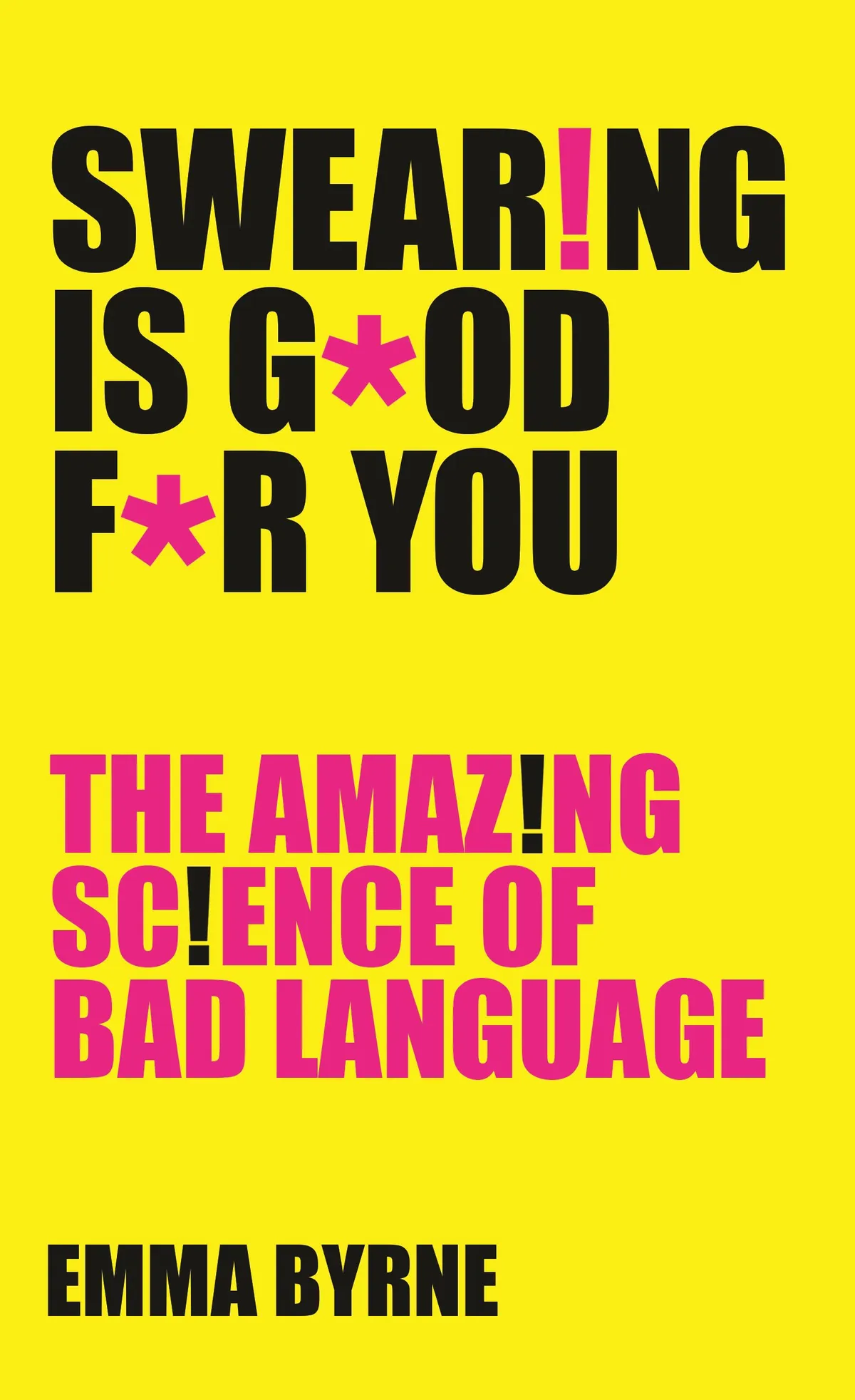Swearing is found in every language, and even chimps do it. But why do we swear, and is it a good thing? We chat to Emma Byrne, author of a new book on the subject.
Why do some words have such a power to shock?
It’s all to do with our taboos as a society. Swear words tend to be based around the things that we think of as sacred, private or slightly shameful: religion, sex, bodily functions, questionable parentage. But what constitutes bad language changes from place to place and from time to time.
In English, there are nursery rhymes containing racial slurs that we wouldn’t dream of teaching our kids today; in French-speaking Canada, the word ‘tabarnak’ (tabernacle) is an incredibly strong swear word related to religion, whereas in France that word isn’t used at all. So it’s not about the sound of the word, but the meaning and the context.
In what ways is swearing good for us?
Most famously, swearing can relieve pain. In 2017, astudyat Keele University asked undergraduates to plunge their hands into ice-cold water and then repeat either a swear word or a neutral word. The students who repeated the swear words were able to keep their hands in the water for much longer than their non-swearing counterparts.
Follow-up work has shown that swearing increases our heart rate and galvanic skin response – that feeling of sweaty palms we get when we’re stressed. So swearing seems to be doing something physiological to the body, preparing it for a fight-or-flight response and allowing it to be more resilient to pain.

Does swearing have any other benefits that we know of?
Swearing is a strong signal of emotional intent, so it’s a useful social tool. Research with chimpanzees has shown that they invent swearing as soon as they have taboos and a means of communication available.
Hang on… chimps swear?
When chimps are taught to use sign language, they’re also typically potty trained. They often internalise this potty training as a taboo around everything to do with going to the toilet – it becomes something shameful to them. And remarkably, the chimps sometimes then use the sign for doing a poo – ‘dirty’ – to express themselves when they’re angry, frustrated or dismayed. It allows them to express strong emotions without doing anything physically harmful.
This might be why swearing originally came about in humans, too. Imagine a small tribe of proto-humans first learning to hunt bison together. If one of your number does a really bad job, you might say, “Hey Zog, you really f—ed up that hunting manoeuvre today”. Being able to use those swear words, rather than just hitting Zog over the head with a rock, means that your tribe will recover from the disappointment much more easily. Zog realises he’s got to buck his ideas up, but nobody gets injured in a fight.
Are there any discernible gender differences in swearing?
It was believed for a long time that women didn’t swear as much as men, until women scientists started carrying out some of these studies and found the opposite. It turns out that women are just a lot less comfortable swearing in front of men, and the same for men in front of women. There are actually very few differences between male and female swearing. Women tend to use slightly milder swear words, and when they swear in front of men it’s usually to demonstrate that they are competent, strong, combative. On the other hand, when guys swear with other guys it’s usually about sympathising with emotions such as frustration and anger. But more jocular swearing is pretty much even between the genders.
Is swearing found in every language?
Yes, but it’s not always based around the same taboos. In Dutch, there are swear words based around illness, such as ‘typhoid’ and ‘cancer’. This goes back to the idea of ‘word magic’ – that just naming something can be enough to make it happen. In German, calling someone a ‘pig’ or a ‘dog’ is enough to get you fined, while in the Middle East, there are moustache-based swear words, because insulting someone’s facial hair can be construed as a comment on their masculinity.
Should we be trying to swear more?
The last thing I would want is for the swear words we’re currently using to become so commonplace that we have to start reaching for more offensive words. It’s then that we start getting into the slurs on people’s race or sexuality. The great thing about the ‘f’ word and the
‘s’ word is that everybody is the product of intercourse and everybody goes to the toilet – they’re universal to the human experience.
Swearing is like paracetamol or jogging – it’s good for you until it starts causing more harm than good. Use swear words in conversation like you’d use seasoning in cooking. You wouldn’t want an entire meal of them, but occasionally they just add a little something to the dish.
